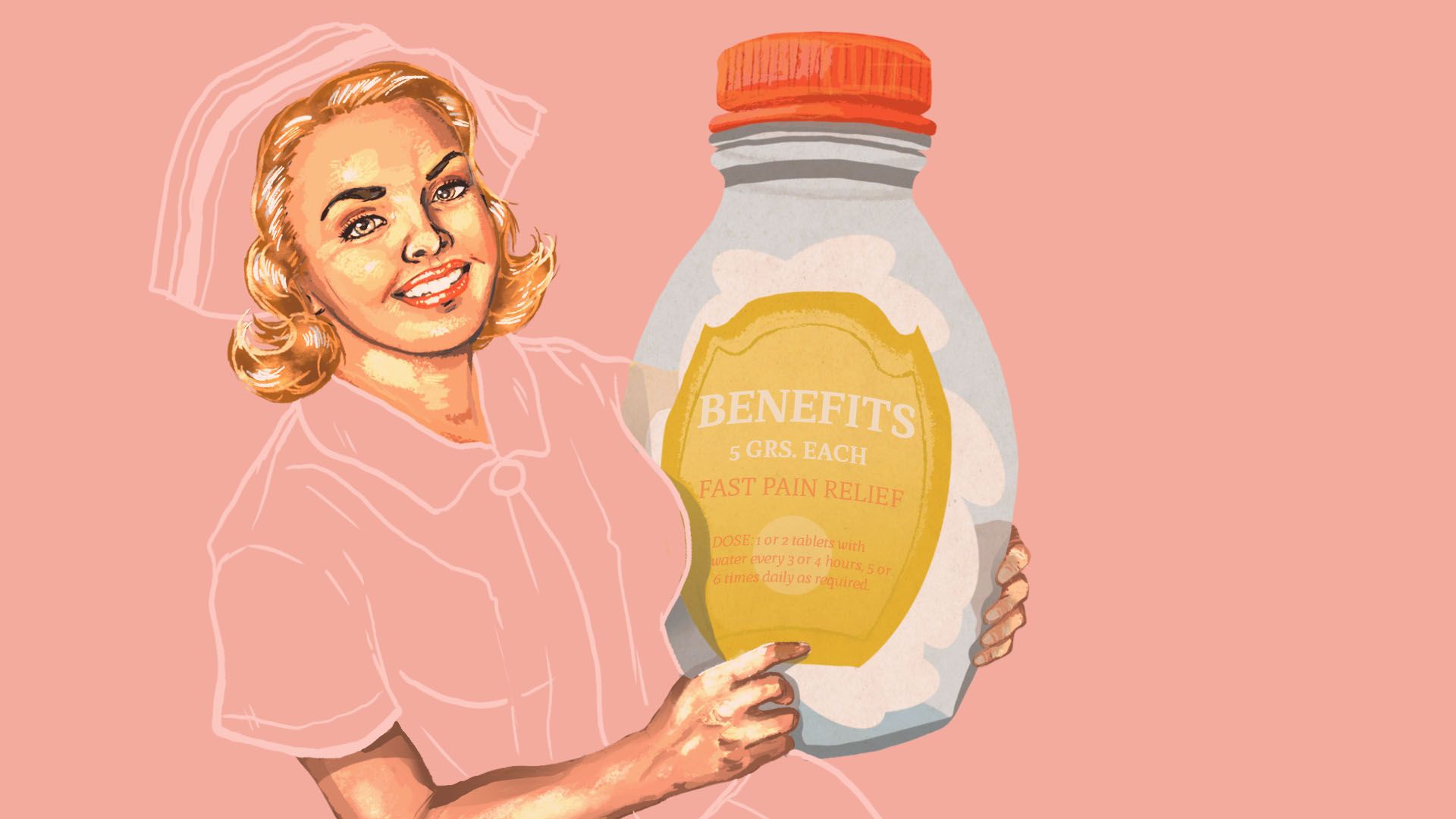Virus spread emphasizes precariousness of gig economy work
Add Axios as your preferred source to
see more of our stories on Google.

Illustration: Sarah Grillo/Axios
While a growing number of white collar companies are asking employees to work from home, gig economy companies seem to be doing little to protect workers in the face of coronavirus — though pressure is mounting for them to do more.
Why it matters: While engineers and business managers at companies like Uber and Lyft can bring their laptops home and access corporate health resources, the independent contractors who ferry passengers, hot meals and groceries, cannot. This highlights painful differences between corporate "haves" and "have-nots."
Driving the news: On Friday, Sen. Mark Warner sent letters to the CEOs of Uber, Lyft, DoorDash, GrubHub, Instacart and Postmates, urging them to set up health funds to compensate drivers who have to cut back their hours — and thus, earnings — out of coronavirus concerns.
- Late Friday evening, Uber announced it will compensate drivers for up to 14 days if they're diagnosed with COVID-19 or put under quarantine by health authorities. Lyft will do the same for an unspecified duration.
- Instacart says that some of its "shoppers," who pick groceries, qualify for sick pay.
So far, the companies have mainly distributed guidelines to drivers about keeping cars clean, washing their hands, and staying home if they feel sick.
Between the lines: One obstacle for these on-demand delivery companies is that providing sick leave and compensatory pay could make it harder to deny that their workers are employees — not just independent contractors.
- Some of these companies are fighting a new California law that makes it harder to classify their workers as contractors.
Meanwhile, Instacart and Postmates are rolling out “no-contact” delivery options in an effort to minimize concerns among customers and drivers.
- DoorDash is emphasizing that customers can put instructions in the app for drivers to leave orders at their door.
Demand for gig delivery services seems to be growing as the virus spreads. Instacart said Thursday that its sales this past week were 10 times higher than the prior week — and 20 times higher in states like California and Washington, where the largest numbers of cases have been reported.
Yes, but: Only 46% of service workers in 2017 received sick-leave benefits, according to the U.S. Bureau of Labor Statistics, in contrast with 93% of workers in management, business and finance, per the Washington Post.
A bright spot: Microsoft — quickly followed by Google, Twitter, Facebook, and Amazon — said Thursday they would pay hourly workers their regular wages — even as they encourage many employees to work from home, reducing the need for on-site staffing.
Editor's note: The story has been corrected to show that Lyft has not specified for how long it will compensate drivers.
